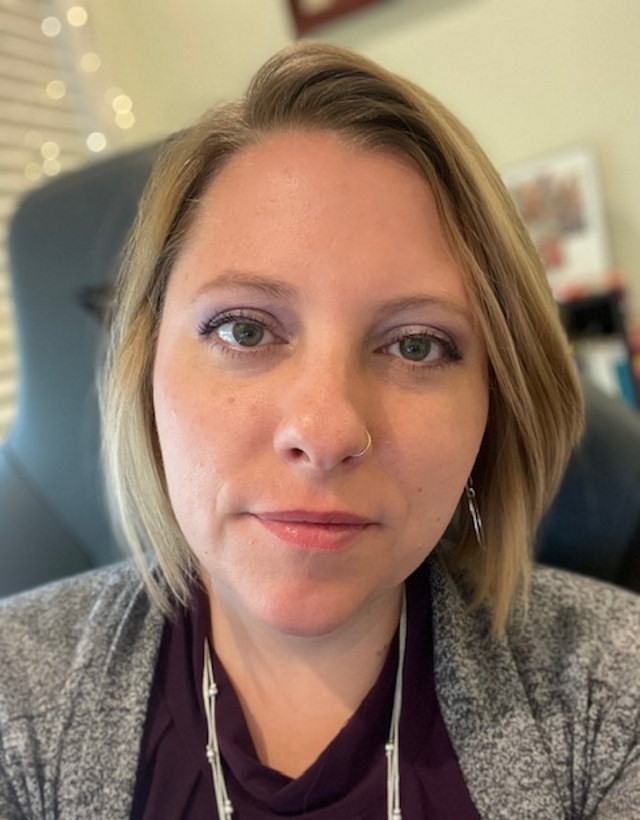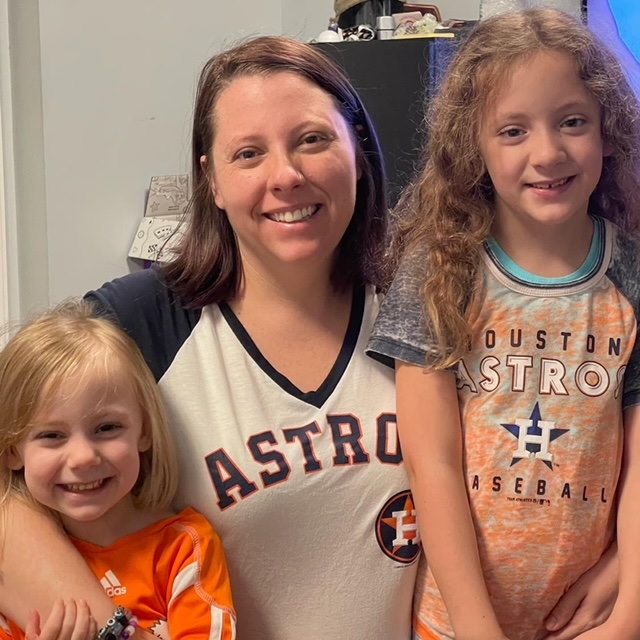2022-March-09
Did you know? You can share this story using the social media icons on the upper left. Use the hashtag #WeAreCisco. You can also rate or comment on the story below.
Sorry, Can You Say That Again?
BY DEIDRE ELLIS · SENIOR PRODUCT MANAGER · UNITED STATES
WITH HELEN GALL
5 MINUTE READ · 8 MINUTE LISTEN
Editor's note: We acknowledge that the world has transformed since Russia invaded Ukraine, and we will continue to lighten your day by sharing the good work and hope that surrounds us.

"Again? Are you deaf or something?”
“I just said that. Open your ears!”
“OMG, you’re so loud!”
“Do you not understand what I mean?”
Kids can be cruel, right?
Even most mean kids wouldn’t say things like this to an openly deaf person.
But what happens when no one can tell that you’re deaf?
When most people hear the word “disability” they typically picture something that is obvious: A person in a wheelchair, someone with a sight dog, or a deaf person with an interpreter.
What most people don’t think of is someone who looks like them. Someone whose disability isn’t visible.
Being completely deaf in one ear, that’s the world I live in.
I was born with a non-functioning nerve in my right ear.
Hearing aids, cochlear implants, and amplifiers aren’t options for me. I will never hear from this ear. However, I do have 100 percent hearing in my left ear, so I can get through life relying on my “good” ear.
Because of this, I look just like everyone else. And when you look like everyone else, people hold you to a collective standard.
The Hearing Loss Association of America states that over 48 million Americans experience some degree of hearing loss. And according to the World Health Organization (WHO), over 5% of the world's population suffers from disabling hearing loss. Five percent may seem like a small number, but that totals over 360 million people across the globe.
Most of those people aren’t completely deaf, but on average, people with hearing loss wait over seven years before seeking help. That means, most people who have hearing loss do not have any obvious signs.
In my experience, when people are faced with a situation that doesn’t have clearly defined processes or boundaries, they don’t know how to navigate it comfortably.
This starts as early as toddlerhood.
When I was a small child, my mother would tell people that I could not hear in my right ear. Immediately, children and adults alike would begin speaking louder and slower to me.
This taught me to start watching how their mouths moved to aid in my comprehension and avoid having to tell them about my disability in the future.
Embarrassment is how I learned how to read lips.
When teachers would learn about my hearing, I would be forced to sit up front in the class so I could hear — and see. While it was likely beneficial for me, the other kids would mockingly call me a goody-two-shoes or teacher’s pet.
As I got older, I learned to get in front of it.
I would tell people about my hearing right away so that they didn’t think I was ignoring them or being purposely aloof.
I also developed a self-deprecating sense of humor about it, but it served to make the people around me relax. If they felt I was casual about it, then they’d relax. And maybe they wouldn’t shout at me.
It wasn’t all bad. I found that my unique hearing had some benefits.
I developed a very good singing voice as a child that stayed with me throughout my life. Many people were amazed at this because I don’t hear my own voice in my head the way others do. I listen for my own voice to adjust pitch and tone. Since I don’t hear anyone to my right, I can very easily pick up and sing a harmony without being affected by the person next to me.

I also found that sleeping on my good ear made it super easy to block out noise. I can sleep anywhere! In cars, in class, at parties, at concerts — you name it, I can fall asleep there.
With the ability to read lips, I could tell what other people were saying from across the room. Having that kind of intel made me a valuable person to have around.
In adulthood, I’ve found that most people have grown in understanding more about accessibility and accommodation, although there’s still some work to be done.
Cisco is the first place I’ve worked where they offer captions in their virtual Webex meetings and on Cisco Live recordings. These are invaluable as there’s no potential for misunderstanding!
For those of us who use sign language, Cisco also provides live interpreters on all their calls.
I still face some challenges that are unlikely to change soon.
For example, being unable to tell where sounds are coming from makes police sirens panic inducing.
But technology is coming a long way to help those of us who need hearing assistance.
Apple AirPod Pros’ transparency mode allows environmental sound to pass through the earbuds, so they’re one of the only headphones I can use. Cars now allow you to balance the speakers that sound comes out from so I can move all my radio sounds to the left side.
The pandemic has been both a blessing and curse.
Remote technology has made it easier for me to function in large groups due to things like the ability for Webex to cancel out background noise automatically or being able to mute audiences during presentations.
However, in person, it is much harder to read lips while maintaining social distancing. And it’s impossible when people are wearing face masks.
I didn’t realize how much I used my lip reading for comprehension until I found myself constantly asking masked cashiers to repeat themselves.
Overall, these minor inconveniences are vastly outweighed by the level of support I receive from my workplace and technology in general.
If you ever wonder how you can support those of us who have any form of hearing loss, the most direct and effective way is just to ask us what methods are best for us.
Just try and remember not to shout.
Related Links
Connect everything. Innovate everywhere. Benefit everyone.
Share your thoughts!
Log in to rate and commentShare your thoughts on the story here!